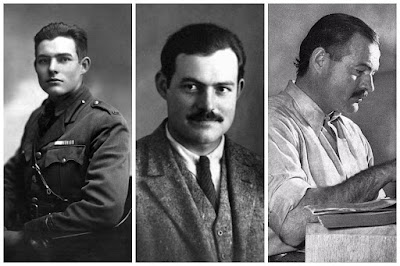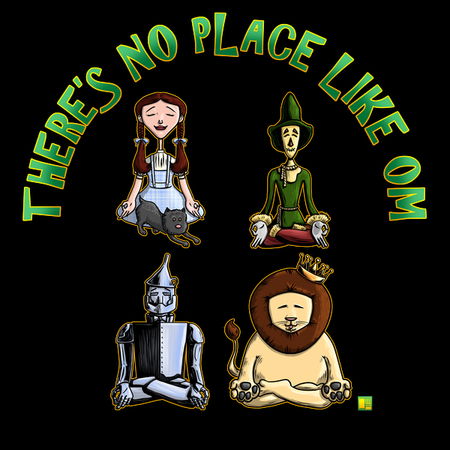I don't know how I managed to skip yesterday, but, for whatever reason, it happened. Moving forward!
This week on PBS I've been watching: "Hemingway, a three-part, six-hour documentary film by Ken Burns and Lynn Novick, examines the visionary work and the turbulent life of Ernest Hemingway, one of the greatest and most influential writers America has ever produced. Interweaving his eventful biography — a life lived at the ultimately treacherous nexus of art, fame, and celebrity — with carefully selected excerpts from his iconic short stories, novels, and non-fiction, the series reveals the brilliant, ambitious, charismatic, and complicated man behind the myth, and the art he created."
It's brilliantly and beautifully done, with vintage footage, photographs, and letters from and to Ernest by wives and parents and friends (the one from his mother equating their relationship to a bank account is chilling). Also, I may have known but definitely forgot that, of Hemingway's immediate family of six (two parents, four siblings), four died by suicide (the father and three of the children, Hemingway included).
I won't attempt to expound on his life and times, but here are a few articles that review the series (which I highly recommend!):
A New Hemingway Documentary Peeks Behind the Myth: Ken Burns and Lynn Novick’s film examines the burden of the author’s performance of himself.
'Hemingway' tackles the writer in a documentary as big as his tumultuous life: The long history of Ken Burns documentaries ranges from places to people to entire wars. His latest collaboration with Lynn Novick, "Hemingway," falls in that middle category, portraying Ernest Hemingway's war-spanning, tumultuous life over six hours, which might not qualify as Hemingway-esque brevity, but proves fascinating nevertheless.
Hemingway: Ken Burns and Lynn Novick have done it again. The documentarians who have occupied the top tier of filmmaking about American history with projects like “Baseball,” “The Vietnam War,” and “The Civil War” return to PBS tonight with a three-part series on the life and legacy of one of the most important authors of the twentieth century, Ernest Hemingway.
"The writer's job is to tell the truth," Ernest Hemingway once said. Great article from The Poetry Foundation.
I already have seven tattoos, and will most probably stop there but, should I ever decide on another, it most likely will be the final sentence in The Sun Also Rises, Jake's response to Lady Brett:
“Oh, Jake,” Brett said, “we could have had such a damned good time together.” Ahead was a mounted policeman in khaki directing traffic. He raised his baton. The car slowed suddenly pressing Brett against me.
“Yes,” I said. “Isn’t it pretty to think so?”
BOOK: The Paris Wife by Paula McLain
POEM: Montparnasse by Ernest M. Hemingway
QUOTE: "Do not worry. You have always written before and you will write now. All you have to do is write one true sentence. Write the truest sentence that you know." ~ Ernest Hemingway
POEM: Montparnasse by Ernest M. Hemingway
There are never any suicides in the quarter among people one knows
No successful suicides.
A Chinese boy kills himself and is dead.
(they continue to place his mail in the letter rack at the Dome)
A Norwegian boy kills himself and is dead.
(no one knows where the other Norwegian boy has gone)
They find a model dead
alone in bed and very dead.
(it made almost unbearable trouble for the concierge)
Sweet oil, the white of eggs, mustard and water, soap suds
and stomach pumps rescue the people one knows.
Every afternoon the people one knows can be found at the café.
QUOTE: "Do not worry. You have always written before and you will write now. All you have to do is write one true sentence. Write the truest sentence that you know." ~ Ernest Hemingway






























No comments:
Post a Comment